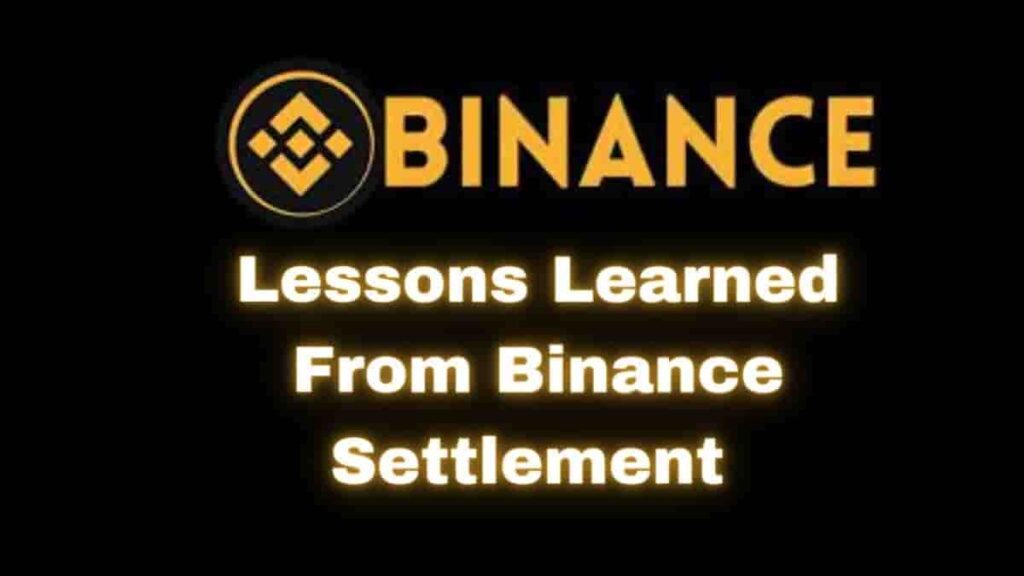{ Binance settlement, cz steps down, cryptocurrency regulation, crypto future, blockchain oversight, Binance breaking news, Changpeng zhao resignation, bitcoin spot etf prospects, crypto mainstream adoption, decentralized finance regulation, defi oversight risks, crypto risk management, Binance decentralized exchange, cz crypto billionaire }

The recent guilty plea and settlement between Binance and the US Department of Justice marks a pivotal moment for the cryptocurrency industry. While unsettling, these developments also pave the path toward legitimacy and mainstream adoption.
The Allegations and Settlement
On November 21, 2023, Binance reached a $4.3 billion settlement with the US government related to allegations of operating an unlicensed money-transmitting business and violating anti-money laundering requirements from 2017-2021. As part of the agreement:
- Binance will pay a fine of $4.3 billion
- Changpeng “CZ” Zhao stepped down from his executive role and pleaded guilty to conspiracy charges
- Binance admitted to prioritizing growth and profits over legal compliance
- Binance will cease operations in the US
This judgment follows the earlier collapse of FTX. Critically, Binance remains operational globally, maintaining client liquidity despite fears of fallout.
“Its ability to pay the fine from its profits differentiates Binance from traditional financial institutions and reassures crypto investors,” said JP Morgan.
Binance Settlement: Broader Significance
The allegations of past non-compliance tarnish Binance’s standing but the firm’s survival also boosts hopes for crypto’s future within an appropriate regulatory framework.
Most directly, the judgment could pave the way for long-awaited spot Bitcoin exchange-traded fund (ETF) approval from the SEC.
“Industry participants estimate that the market for potential spot crypto ETFs in the U.S. could immediately be in excess of $100 billion,” noted Bloomberg. This influx of investments from mainstream asset managers like BlackRock and Fidelity would represent a legitimizing milestone.
More broadly, the reckoning forces a shift toward regulated crypto entities, which will further mature the space. Clearer rules offer greater investor protection while also spurring participation from cautious institutions.
“This shift towards regulation in crypto should not only attract more capital from institutional investors but also provide comfort to retail clients,” wrote JPMorgan strategists.

Binance Settlement: Lessons Learned
The Binance saga imparts several key lessons:
- Decentralization is paramount. Dependence on centralized figures and exchanges contradicts crypto’s founding principles.
- Regulation brings legitimacy but requires adjustment. Compliance overhead challenges idealism but enhances sustainability.
- Anonymity enabled Bitcoin’s rise yet complicates oversight. Privacy allows builders autonomy to decentralize but raises flags for authorities.
Striking the right balance remains an evolving challenge.
Binance Settlement: The Road Ahead
Despite its pioneers’ stumbles, the guiding vision of an open and user-controlled financial system endures. The innovations Satoshi Nakamoto set in motion maintain technological promise. With prudent structures balancing decentralization and compliance, this epoch-defining technology can still achieve its world-changing potential.
Uncertainty remains and the path won’t be smooth. But this judgment crystallizes both the perils and promises of cryptocurrency’s ascent. As the industry matures, this pivotal point provides an opportunity to learn from missteps while continuing toward a more inclusive financial future. With its resilience tested, crypto now evolves having weathered the growing pains on the long road toward mainstream adoption.
Watch a Web story on this topic:
Frequently Asked Questions
Q. What was Binance accused of?
Operating unlawfully as an unregistered money transmitter and violating anti-money laundering laws from 2017-2021 prioritizing profits over legal compliance.
Q. What are the terms of the settlement?
A $4.3 billion penalty, ceased US operations, CZ resigning as CEO, and pleading guilty to conspiracy. Binance remains globally active.
Q. Who brought the allegations against Binance?
The US Department of Justice following investigations from multiple government agencies like the IRS, Treasury Department, and Commodity Futures Trading Commission.
Q. How does this impact the crypto industry?
It reinforces a shift toward more regulated entities, which may facilitate mainstream adoption. But it also undermines the ideals of decentralization.
Q. Could this enable the first Bitcoin spot ETF?
Possibly. Estimates suggest US spot crypto ETFs could rapidly reach $100+ billion market value if approved by the SEC. This judgment might clear that path.
Q. Does Binance have enough money to pay the fine?
Apparently yes. And that capacity distinguishes it from traditional financial institutions as uniquely resilient per JPMorgan.
Q. What are the lessons learned from this episode?
The imperative of accountability and compliance for legitimacy is balanced with decentralization for equitable access, security, and censorship resistance.
Conclusions for Binance Settlement
The Binance settlement represents a turning point for the crypto industry. While damaging for the exchange and CZ personally, the ability to pay record fines also instills some confidence. It underscores the capacity to operate legally for compliant entities.
With this reckoning also comes progress. The adoption pains regulators to grow to welcome crypto from the shadows toward mainstream finance. Clearer guardrails boost investor protection although compromise decentralization ideals.
As crypto builds legitimacy within pragmatic legal frameworks, innovation can continue responsibly. Despite recent turmoil, vast opportunities remain to build an open and inclusive financial system empowering users over institutions. But the path ahead depends on leaders heeding lessons from Binance and FTX while forging wise new models true to foundational principles.
Disclaimer
The information presented in this blog post is intended for general educational and informational purposes only. Statements made should not be construed as personalized investment advice. Cryptocurrency investment carries risk and readers should conduct their own research and due diligence before making any high-risk investments in cryptocurrencies, blockchain technology, or digital assets. The views and opinions expressed in this article belong solely to the author and do not necessarily reflect those of CryptoWini.
CryptoWini does not endorse any cryptocurrency projects or make buy/sell recommendations. We are not liable for any loss or damages arising from decisions users make based on this blog post.
All company and product names mentioned herein may be trademarks of their respective owners. Use of them does not imply any affiliation with or endorsement by the companies or individuals.
This blog post references coin prices from CoinMarketCap. Historical performance is not indicative of future returns. Any financial information given is at the time of writing, subject to market forces beyond our control.































